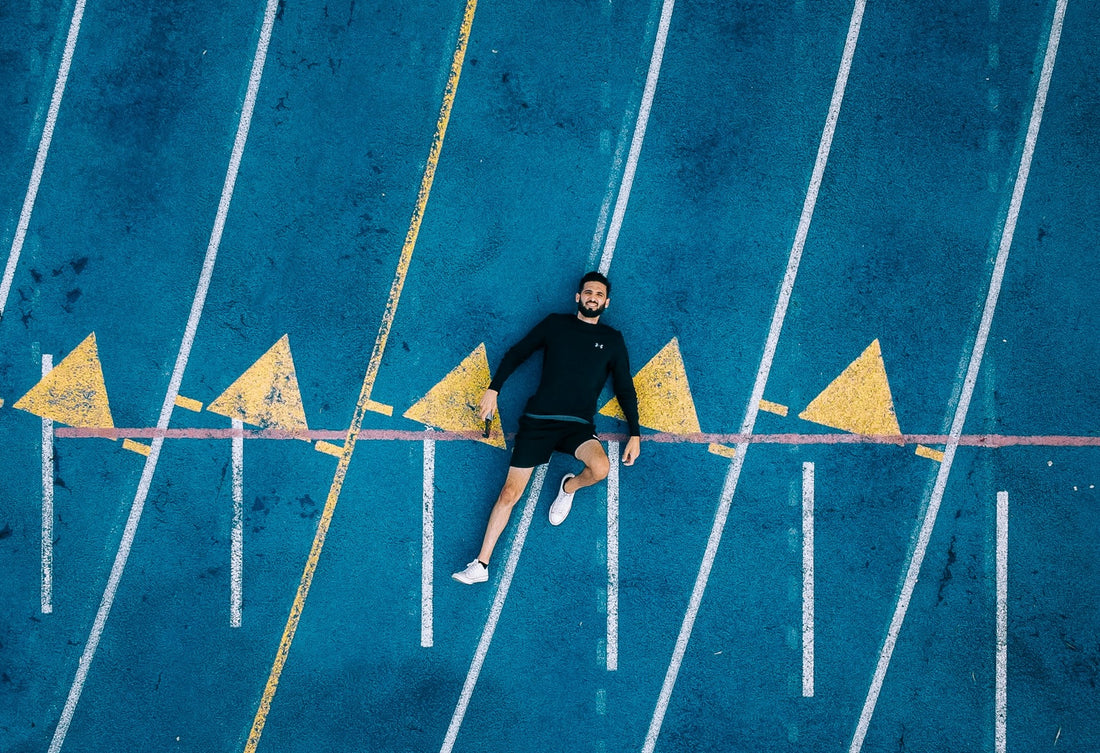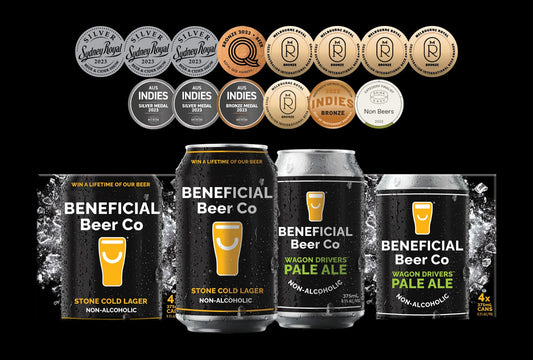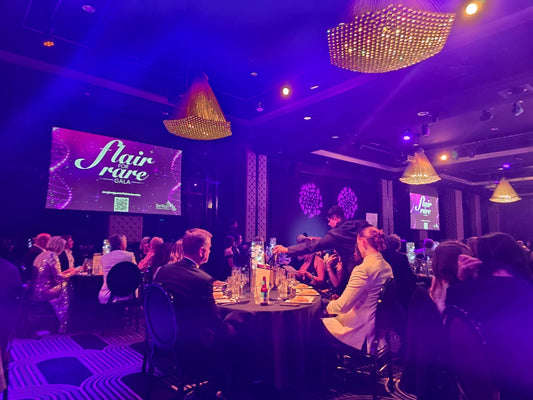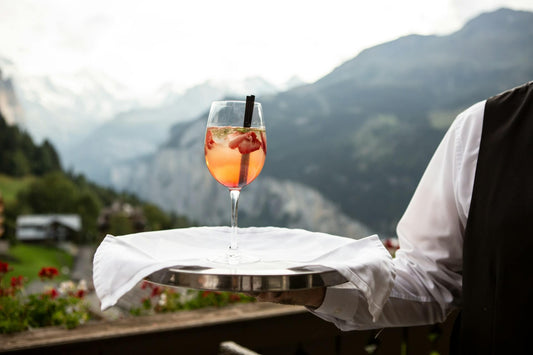Top athletes turn to an unexpected beverage in their time of need. Non-alcoholic beer. The German Olympic team did it, donning a few medals along the way. Sports drinks are loaded with sugars, and alcohol can reduce muscle growth by up to 37%... no wonder they looked elsewhere.
The challenge is in balancing a social life while maximising health and performance. Non-alcoholic beer hits a home run with hydration, recovery benefits, and easy fitting into social settings… with none of the downsides.
Too good to be true? Think again.

.
From Biergarten to Gold
Gatorade and regular beer stepped off the podium. The German Olympic teams swapped post-race pints for alcohol-free brews and ended up with a bounty of medals over the years.
Magdalena Neuner of Germany won three biathlon gold medals in the Sprint, Pursuit and Relay events. She's in the photo below enjoying a glass of non-alc Bier after a medal ceremony. Simon Schempp, another Deutsch Olympic biathlete, took home a silver medal thanks to the non-alcoholic beers fuelling his training.

Big in Bavaria, bigger abroad. With Erdinger and Krombacher getting on the non-alc sport beer train, the German Olympians got almost 4000 litres shipped to them at the Pyeongchang Games.
And let’s stop you there. Yes, Germans drink more booze per capita than almost any other nation. But Johannes Scherr, the doctor for the German Olympic ski team, said nearly all of his athletes drink nonalcoholic beer during training.
It’s not just a culture thing, and it's likely that within a decade, non-alcoholic beer will become the go-to recovery drink for athletes.
But why?
.
It’s Time to End this Tug-o’-War
Athletes are no strangers to the social pressure of post-competition celebrations, often marked by clinking beer bottles and toasting victories. But these long-standing traditions can conflict with an ideal health routine.
Alcohol's negative impact on recovery is well-documented, making it a questionable choice for those serious about their sport. Nothing says ‘peak performance’ like a drink that doesn’t sabotage your gains.
But worse, some sports brands endorse alcohol in their collaborations en masse.
What comes first: optimised performance or upholding tradition?

While they may offer quick hydration, sports drinks can lead to flavour fatigue and aren't always the healthiest option. Athletes need variety.
Beer offers a refreshing, savoury alternative to the overly sweet options. Its complex, non-sweet flavour profile appeals to athletes after the repetitiveness of typical sports drinks.
Good thing we can now get the taste and benefits of beer without the alcohol, eh?
.
Why Can’t Athletes Drink Like the Warriors of Old?
Vikings drank mead made from honey before their battles. It was believed to give them strength and courage, after all, there’s plenty of mead in Valhalla too.
Today's athletes face a different problem.

While the high concentration of polyphenols in beer is probably its core health benefit, it dimly shines next to the drawbacks. Even with a dash of vitamin B9 and a garnish of B12, you might have yourself a pretty healthy drink for battle.
Unfortunately, the elixir is tainted:
- Alcoholic beer is a diuretic. It has no electrolytes. You’ll pee more, become dehydrated, and risk more cramps, pulls and strains.
- Alcohol can disrupt sleep patterns. It might make you doze off, but not into deep sleep. Those stages are crucial for muscle recovery.
- Alcoholic beer is hypertonic. This means it draws water from your cells which dehydrates you even further.
- Alcohol decreases testosterone. Even a single binge drinking session will plummet this essential performance hormone for men and women.
Maybe your ambrosia is recovery drinks. Recovery drinks might feel like they restore energy - and some do - but others face excess sugars, preservatives, and other nasty ingredients none of us can pronounce…
.
The Winning Formula: Non-Alcoholic Beer for Athletes
Samurai warriors in Japan would engage in tea ceremonies to prepare mentally and physically for battle.
Feudal Japan is long behind us, but today’s athletes follow suit by drinking non-alcoholic beer to enhance recovery and readiness. They’re not just looking for performance on the field, but also long-term health benefits.

Turns out, removing alcohol from beer takes it from 0 to 100 on the sports drinks charts:
- You know those Polyphenols we mentioned earlier? Non-alc now makes them shine. Their unique structure regulates genes that control inflammation, mitigating muscle soreness, joint pain, and fatigue.
- Non-alc carbohydrates replenish your glycogen stores, giving you energy. The nice energy, that is.
- Non-alcoholic beer is within the isotonic range. ‘Isotonic’ refers to a drink being of similar concentration to human blood. This allows water to move from the gut to the bloodstream at a similar rate to sports drinks, which is great for hydration and recovery.
Non-alcoholic beer can act as a placebo too, offering the satisfaction of enjoying a "reward" without the negative effects of alcohol. But it isn't just about avoiding the negatives of alcohol. It's also a performance enhancer:
.
Performance Booster

Immune Support
Supports Performance Lifestyles
Non-Alcoholic Beer in the Wider World of Sports
American Sports:
- NFL Defensive End, J.J. Watt, and other athletes have joined Athletic Brewing Company, while Guinness debuted a campaign with NFL stars Joe Burrow and Joe Montana to promote Guinness 0.
- Basketball players have been given polyphenols (the big plus in non-alcoholic beer) to see how they affect their game. The results showed improved mean circuit time and reduced rating of perceived exertion
Races:
- Who said only the podium finishers get the fun? At the 2017 Berlin Marathon, 30,000 bottles of Erdinger non-alc were handed out, and the winners didn't just get medals; they got pitchers of non-alcoholic cheer.
- Formula One has partnered with non-alcoholic beer brands, getting everybody to the finish line of healthier performance.
Cycling:
- Looks like cyclists have found a way to pedal and party too. Tourtel Twist, a popular non-alcoholic beer brand in France, recently became an official supplier of the Tour de France cycling race.
- Back in 2018, Krombacher 0% became a new partner of the Association of German Cyclists (BDR).
.

Raising the Bar for Athletic Culture
It's time to swap the post-game pitcher for a six-pack of the good stuff - the non-alcoholic six-pack that is (although we wouldn't turn down a chiselled 6 pack either!).
Younger generations, particularly Gen Z and millennials, are embracing a "sober curious" lifestyle. Nearly three-quarters of these groups are actively seeking out non-alcoholic alternatives.
It's partly due to social media. People are more aware that "the internet never forgets", and moderate alcohol consumption to manage their online reputation. Non-alcoholic beer allows athletes to participate fully in social gatherings without compromising.
But it's not just about looks.
As we've shown, non-alcoholic beers are a refreshing and enjoyable alternative that athletes can look forward to. They align with their disciplined, health-focused lifestyle.

Soon, we will see major sports brands shift their sponsorships. Nike, Under Armour, Red Bull, and Reebok will partner with non-alcoholic beer brands to promote healthy lifestyles and peak athletic performance. Beyond this, we are seeing non-alcoholic beer entering the military and corporate settings, where focus and physical health are core.
Non-alcoholic beer is more than just a beverage; it symbolises the shift of norms around health and performance. Challenging the dominance of traditional sports drinks and social drinking starts with a simple switch. A switch that can grow into a lifestyle.
Beneficial Beer's range of non-alcoholic brews allows you to taste the difference that sustainability and health-focused brewing make. Every sip you take contributes to your performance goals and the environment.
.




